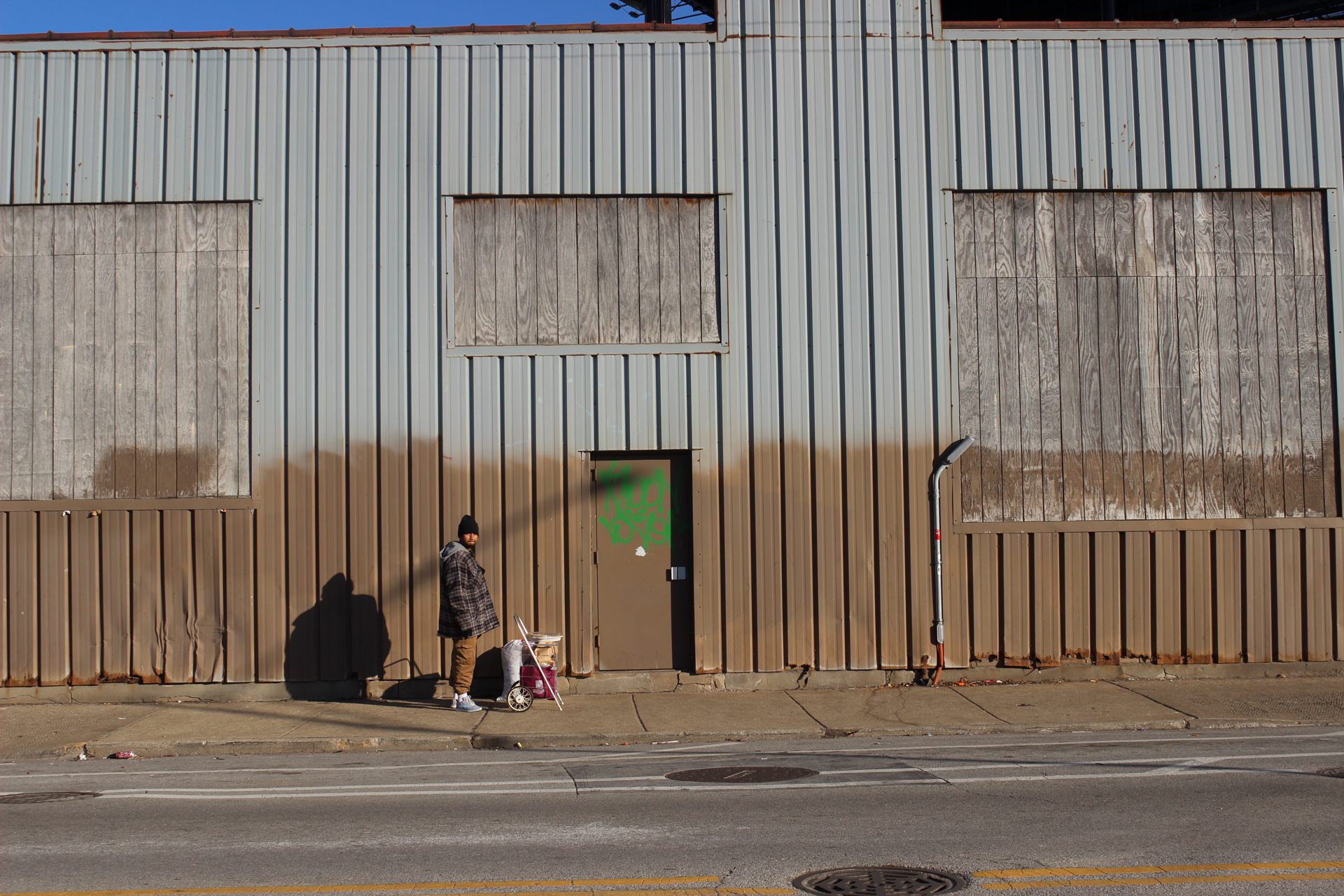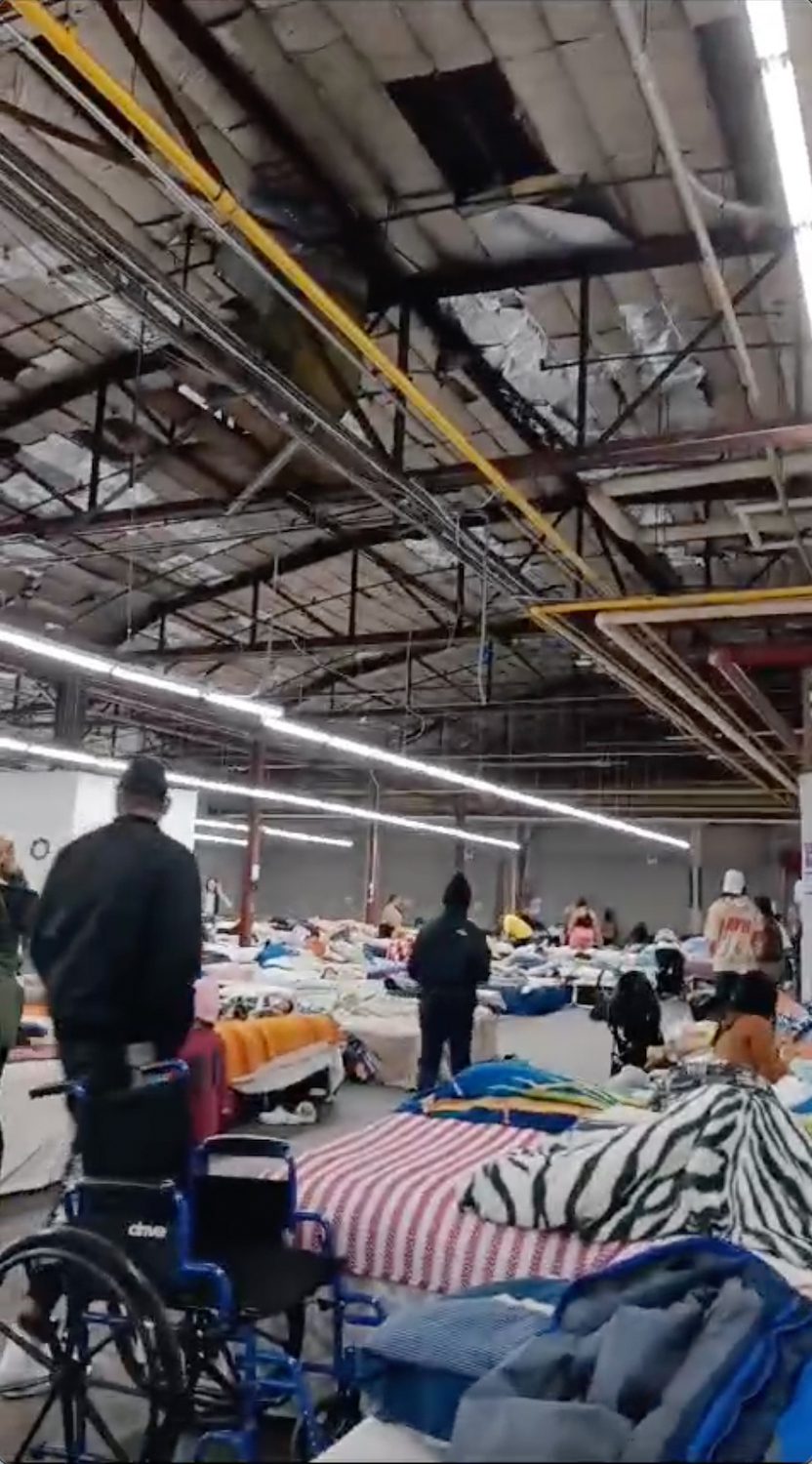 Mauricio Peña/Borderless Magazine
Mauricio Peña/Borderless MagazineThe death of the boy comes just days after a Borderless investigation found inhumane living conditions at the shelter in Pilsen.
A five-year-old boy died after falling ill inside Chicago’s largest migrant shelter, adding concerns to the living conditions at the site.
Want to receive stories like this in your inbox every week?
Sign up for our free newsletter.

Around 2:49 p.m. on Sunday, police were notified that a five-year-old boy was seriously sick at the shelter. Emergency Services transported the boy to Comer Children’s Hospital where he was pronounced dead an hour later, according to the Chicago Police Department’s news affairs office. Migrants at the shelter tell Borderless they believe the boy died at the shelter, however.
The boy was identified as Jean Carlos Martinez, according to the Cook County Medical Examiner’s Office.
On Sunday night, a Venezuelan migrant living at the shelter told Borderless the boy had a more than a 100-degree fever and was convulsing in the bathroom before emergency medical technicians and firefighters were called.
The death happened just three days after Borderless Magazine published an investigation revealing inhumane conditions inside the shelter, including a lack of medical care and the rationing of water. Interviews with those living at the shelter and videos Borderless reviewed of conditions inside the building show that the shelter fails to meet the basic standards for emergency shelter laid out by the U.N. Refugee Agency.
“There is a plague here,” the migrant told Borderless on Sunday. “There are a lot of sick families … And there are no doctors here.”
“My heart and my prayers go out to the Martinez family,” Mayor Brandon Johnson said in a statement. “The City will continue to provide resources and support to them during this difficult time.”
Johnson’s administration said the five-year-old was suffering from a medical emergency and passed away shortly after arriving at Comer Children’s Hospital.
City officials were providing support to the family and were gathering information on this tragedy, Johnson said.
About 2,300 recently arrived migrant families are living at the shelter at 2241 S. Halsted St. as of Dec. 8, according to city records. More than a dozen migrants shared their experience with Borderless for the magazine’s recent investigation on the condition of anonymity for fear of hurting their immigration case and getting kicked out of the Pilsen shelter. They lamented the harsh shelter conditions, including cramped living quarters, mistreatment from workers, freezing temperatures, and unsanitary bathrooms.
In 2023, the city spent tens of millions of dollars on shelters for migrants. Among the items, the city says they provide shelter residents with a cot, blanket, pillow, three meals per day, access to showers, hygiene items, and access to laundry services.

In recent weeks, migrants described outbreaks of various illnesses, including chickenpox, the flu, and upper respiratory infections, spreading without sufficient medical attention. The experiences of migrants inside the Pilsen shelter offer a glimpse inside the city’s network of emergency shelters hurriedly opened to house the migrants being steadily sent to Chicago from the border since August 2022.
A pop-up clinic comes in for a few hours every eight days to provide medical help, the migrants say, but little is done during those quick visits for those seeking medical attention. Migrants described waiting a long time to be seen only for no treatment to be given. “A lot of people have gotten sick,” one migrant told Borderless.
Read More of Our Coverage
A frustrated mother whose two children recently fell ill was not given any medicine and was told to go to a clinic outside the shelter if she needed additional support.
On Sunday night, a migrant who has been sick at the shelter for a week told Borderless they were worried staffers were trying to prevent the public from knowing about the conditions inside the city-supported shelter.
“There’s a lot of illnesses here, and they’re trying to hide it.”
Read Borderless’ investigation here.

Bring power to immigrant voices!
Our work is made possible thanks to donations from people like you. Support high-quality reporting by making a tax-deductible donation today.

